![]() — หน้าแรก — เกาะติดข่าว
— หน้าแรก — เกาะติดข่าว
ข่าวเศรษฐกิจและธุรกิจประจำสัปดาห์
-

Myanmar’s mineral exports increased USD $ 1.87 billion in the last 2019 – 2020 financial year
Myanmar’s mineral exports have shown a marked increase, touching US$1.87 billion in the past financial year 2019-2020, an increase of $405.48 million compared with the year-ago period, according to the data from the Ministry of Commerce. In the corresponding period of the FY2018-2019, mineral exports were pegged at just $1.465 billion. Both private and public sector mineral exports have recorded an increase in the current FY, with private sector exports valued at $1.35 billion and public sector exports estimated at $520.6 7million. So far, excavation of over 1,250 mining blocks has been permitted on a manageable, small, medium, and large scale, according to the Ministry of Natural Resources and Environmental Conservation. Due to the limited extraction of natural resources, exports of forest products and minerals had dropped significantly in the previous years. Permits for mining blocks were suspended in 2016, but after a period of two years, Myanmar’s mining sector has now been opened to local and foreign investors, according to the ministry. Within two years of the implementation of the Myanmar Mines Law, the Mines Department has approved more than 140 out of 3,000 proposed mining blocks, and many more blocks are to be granted the permit. At present, evaluation teams in Kachin, Kayah, Shan, and Kayin states and Sagaing, Taninthayi, and Magway regions are screening mining applications, based on the opinions of the respective departments and the region and state governments. The Myanmar Mines Law was enacted on 24 December 2015, but the law came into force when the rules were issued on 13 February 2018. The ministry undertakes the screening process of the proposals for medium and large-scale mining blocks. At the same time, regional and state governments are allowed to process applications for small-scale mining blocks. -

Myanmar attracted nearly USD $ 5.7 billion of Foreign Direct Investment (FDIs) in 2019 – 2020 financial year
In the financial year 2019-2020 which ends on September 30, US$5.689 billion of foreign direct investment has been pumped into Myanmar which is considered by many countries as the last frontier economy in Southeast Asia region, an increase of more than US$1 billion when compared to the same period last year, according to the latest figures updated by the country’s Ministry of Investment and Foreign Economic Relations. The Myanmar Investment Commission (MIC) tasked with evaluating, assessing and permitting the investment projects proposed by foreign firms and domestic companies gave the nod to 11 foreign investment projects in industry and real estate sector on September 29. The foreign investment proposals approved by the MIC are valued at over US$290 million and expected to create up to 8,744 job opportunities for Myanmar citizens. The foreign investment projects approved by the MIC from October 1 last year to September 30 this year under the Special Economic Zone Law were US$163.27 million. The MIC also gave the green light to 130 Myanmar citizen-invested projects valued at more than Ks1,535,075 million and US$267 million in the same period. -
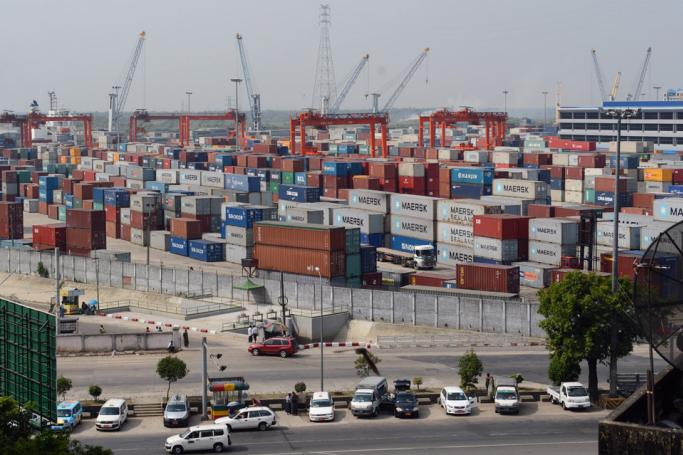
The value of trade between Myanmar and foreign countries exceeded over USD $ 36.6 billion in 2019 – 2020 fiscal year
The total trade between Myanmar and foreign countries reached over 36.6 billion U.S. dollars in previous fiscal year (FY) 2019-2020 which ended on Sept. 30, according to figures released by the Commerce Ministry Xinhua reported. From Oct. 1, 2019 to Sept. 30 this year, Myanmar earned over 17.6 billion U.S. dollars from export while its imports reached over 19 billion U.S. dollars. -
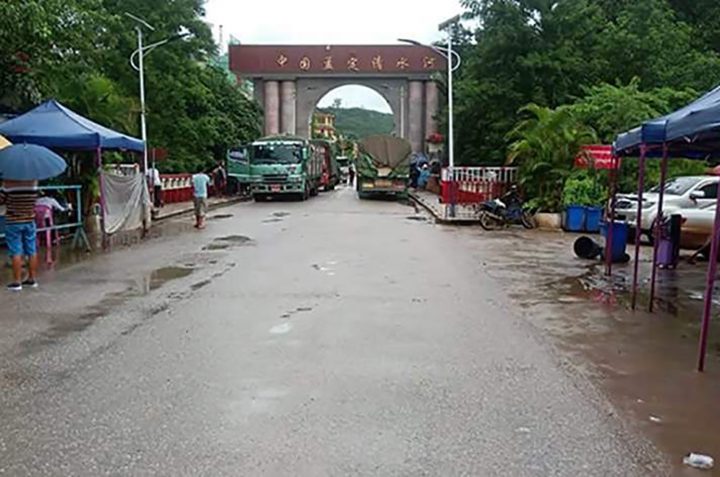
The export value of Myanmar through border trade decreased USD $ 66 million during 2019 – 2020 fiscal year
The number of Myanmar’s exports to the neighbouring countries through border trade showed a decrease of US$66.57 million in the last financial year 2019-2020 compared with the FY2018-2019, resulted from the trade suspension and closure of border crossings as a precautionary restriction measure for the COVID-19. The export through border trade reached $7.152 billion in the FY2019-2020, which was slightly plunged from $7.219 billion in the FY2018-2019, the Ministry of Commerce’s trade data showed. Myanmar’s border trade totalled $10.58 billion in the FY2019-2020. As usual, Myanmar’s export outperformed import in border trade, with export worth $7.15 billion and import valued $3.42 million. Myanmar has opened 18 border posts between Myanmar and the neighbouring countries; with China through Muse, Lwejel, Chinshwehaw, Kampaiti and Kengtung, with Thailand through Myawady, Kawthoung, Myeik, Hteekhee, Tachilek, Mawtaung, Maese, with Bangladesh through Sittway and Maungtaw, with Laos through Kyaiklat and with India through Tamu, Reed and Thantlang. -
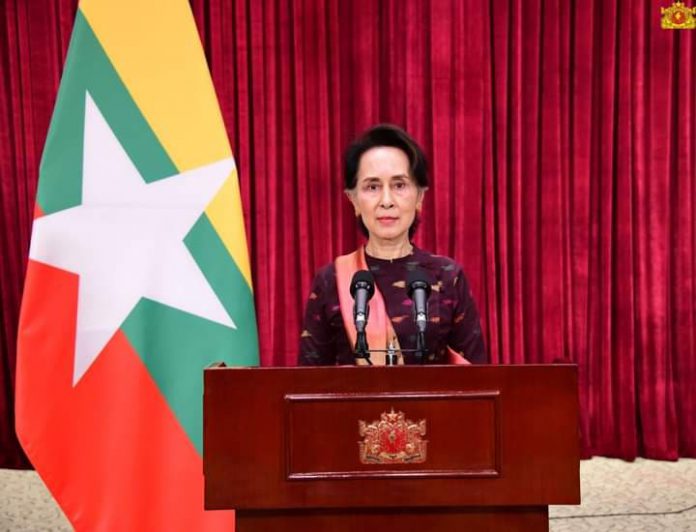
State Counsellor worried the loss of both foreign and local investments if factories suspended for a long time
If the factories, which run with foreign direct investment, remained close for a long time, it can result in the loss of investment, Daw Aung San Suu Kyi, the State Counsellor of Myanmar, said in her address to the people explaining the situation of the pandemic in Myanmar. “If the factories that run with foreign investment remain closed for a long time, we might not continue to get the investments. If we lose investments, it is not good for our economy and the lives of our workforce. Therefore, we want factories to resume as soon as possible,” she said. The Ministry of Health and Sports will allow the CMP factories as well as small and medium enterprises to resume the operation if they meet all the requirements of COVID-19 prevention and get an A-rating for preparedness. -
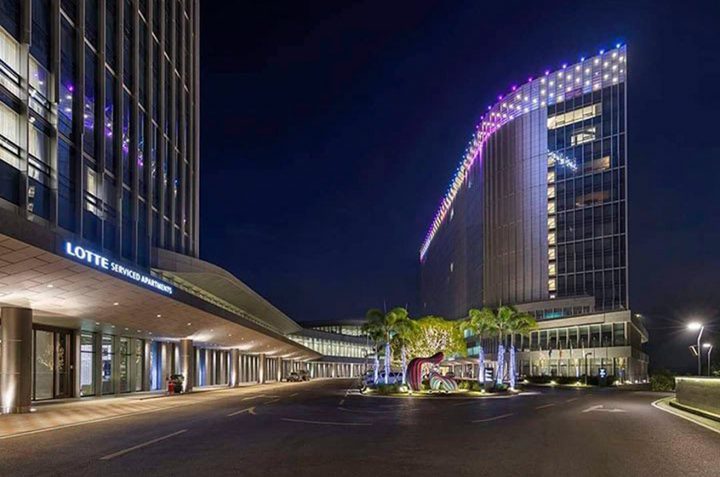
Myanmar’s Foreign Direct Investment (FDI) tops USD $ 25 billion over the past four and half years under incumbent government period
Myanmar has attracted more than US$25 billion of foreign direct investments over the past four and half years under the incumbent government, according to the Directorate of Investment and Company Administration (DICA). The Myanmar Investment Commission (MIC) and the respective investment committees granted permits and endorsements to 1,032 foreign enterprises between the 2016-2017FY and 2019-2020FY, with estimated capitals of US$25.186 billion. The FDIs stood at $6.9 million from 158 enterprises in the FY2016-2017, $6.119 billion from 234 businesses in the FY2017-2018, $1.94 billion from 89 projects in the 2018 mini-budget year, $4.5 billion from 298 enterprises in the FY2018-2019 and $5.689 billion from 253 businesses in the FY2019-2020 respectively, the DICA’s data indicated. The FDIs flow into the 12 sectors; oil and gas, power, transport and communications, real estate, hotels and tourism, mining, livestock and fisheries, industrial estate, agriculture, construction, manufacturing and other service sectors. -
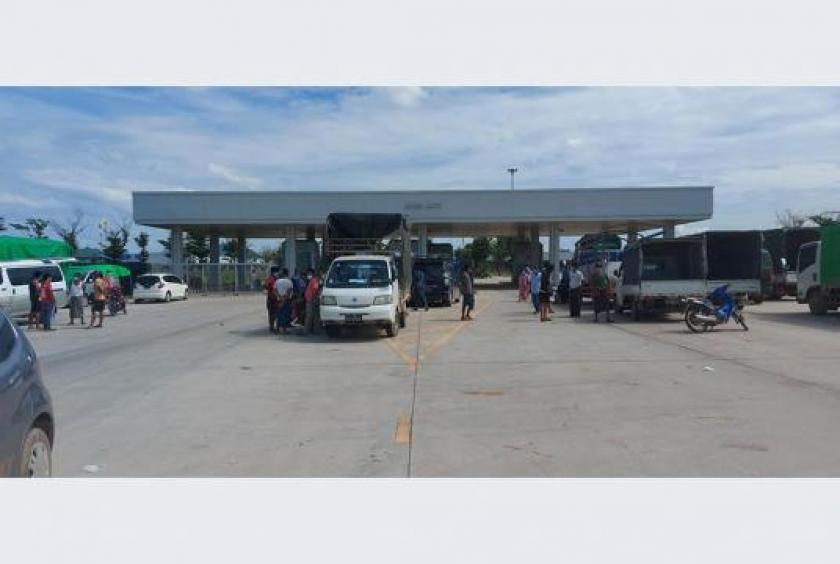
Myanmar – Thai trading cargo trucks allowed to exchange goods only in BCF Zone cargo compound of No.2 Friendship Bridge
Under current circumstances, cargo trucks trading between Myanmar and Thailand have been allowed to exchange their goods only in the BCF Zone Cargo Terminal compound of No.2 Friendship Bridge aso of October 11, said the commissioner of Myawady District. “Currently, bilateral trade is allowed only at the BCF Zone. We have some difficulties. The cargo trucks from both countries have to load and unload goods in the BCF Zone Cargo compound,” said Myawady District commissioner Tay Zar Aung. -
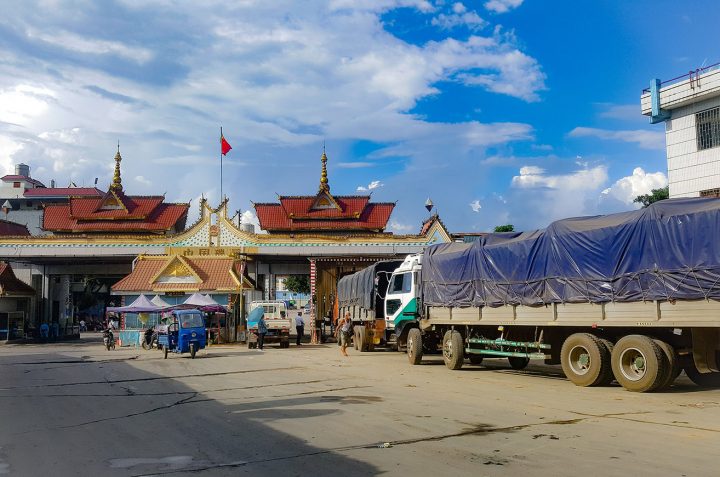
China raises driver substitution charges through Mang Weing border crossing in order to bid to contain the spread of coronavirus
In a bid to contain the spread of coronavirus, Mang Weing border checkpoint has adopted driver substitution system starting from the first week of April, and China unexpectedly scaled up charges for driver substitution on 11 October. “China increased charges for driver substitution. Earlier, more than 20 substitute drivers were assigned to transport the goods, under the supervision of China’s authority. Now, a company is responsible for handling this. The charge for substitute driver was earlier set at 20 Yuan. The rate has now remarkably jumped to 100 Yuan. At present, five drivers are operating this. The charge is an exorbitant rate, with entry and exit fees set at K20,000 each”, said chair of Muse-Namkham Chamber of Commerce. As China has been stepping up border control measures to contain the spread of the COVID-19, the driver substitution policy has been exercised on Muse, Mang Weing and Kyalgaung border route. -

Myanmar’s trade deficit significantly widens to USD $ 1.46 billion in 2019 – 2020 financial year
Myanmar’s trade gap has significantly surged to US$1.46 billion in the financial year 2019-2020 from over $1 billion registered in the corresponding period of the 2018-2019FY, according to the data provided by the Ministry of Commerce. Between 1 October and 25 September in the current FY, Myanmar’s external trade increased to over $36.2 billion from $34.3 billion recorded in the year-ago period. While exports were estimated at $17.37 billion, imports were valued at $18.8 billion. Compared to the FY2018-2019, exports showed an increase of $851 million, while imports climbed up by $1 billion. Myanmar’s foreign trade has shown a 10-per-cent increase, year over year, under the incumbent government. Myanmar exports agricultural products, animal products, minerals, forest products, and finished industrial goods, while it imports capital goods, intermediate goods, CMP raw materials, and consumer goods. -
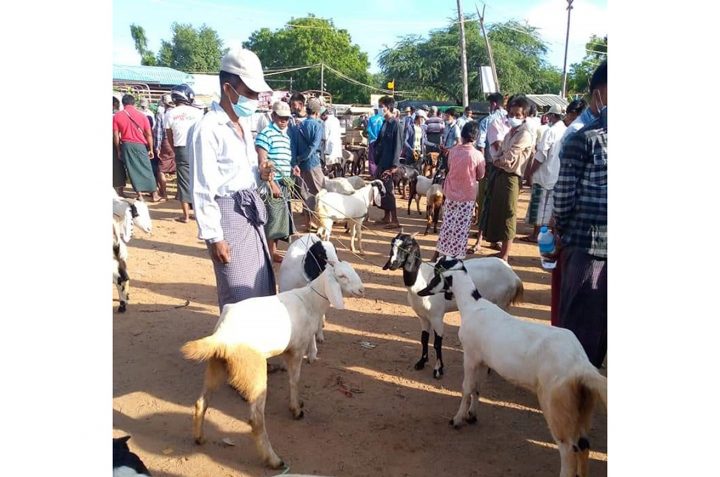
Goat, cattle exporters call for regulatory relief and market creation in domestic meat market
The goat and cattle exporter are asking for regulatory relief and market creation in domestic meat market as they are carrying a heavy burden due to export difficulties through border trade and high input costs such as feedstuff cost and labour wages. “We request the reduction of market barriers. It does not mean to reduce the Licence C fee, controlled by a municipal committee for butchery. We want the municipal to support breeding and meat production. If regulatory fees including permit fees by the Department of Livestock Breeding and Veterinary and tax costs around K5,000 per head of cattle, we can sell the boneless mutton of export quality at K10,000 per viss (a viss equals to 1.6 kg). The price, however, is not suitable for the domestic market. If there is a canned meat factory invested in the country, we can provide them as much as they want. The high-quality meat is not usually consumed in the domestic market. Consequently, the cattle and goat exporters are now waiting for the export market, while they are being burdened by feedstuff cost and other general costs.
เกาะติดข่าว
Copyright © 2014 Business Information Center All Rights Reserved.







